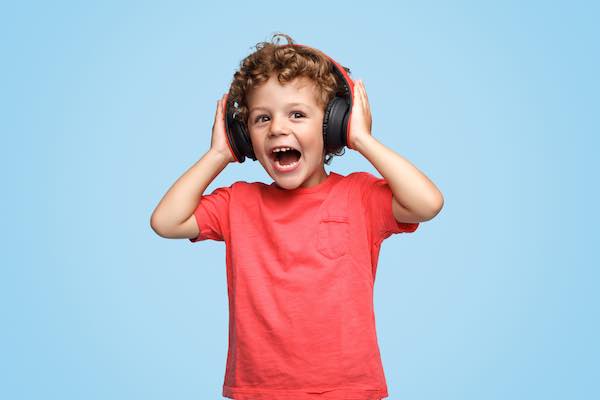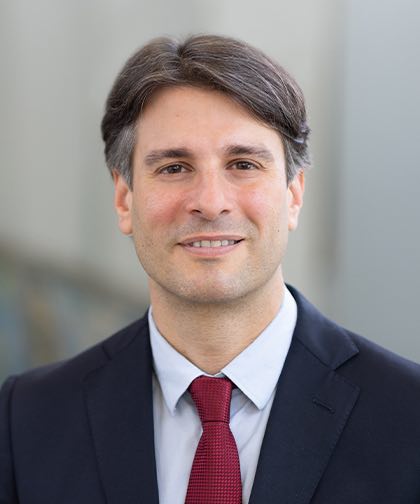Hearing Loss in Children: Avoidable, Yet Treatable
- Category: Health
- Published: Wednesday, 03 January 2024 12:53
- Joanne Wallenstein
 The following was submitted by Dr. Michel Nassar, Pediatric Otolaryngology at White Plains Hospital.
The following was submitted by Dr. Michel Nassar, Pediatric Otolaryngology at White Plains Hospital.
“Turn it down!” has been a regular refrain from parents at least since the dawn of rock ‘n’ roll. But evidence shows that adolescents should indeed be taking care when listening to, or playing, music at excessive volumes.
Obviously loud noises can have an impact on one’s hearing, especially if it is repeated regularly; that is why wearing noise-canceling headphones is recommended when leaf-blowing, working certain construction jobs, and so on. Listening to music is meant to be a pleasurable experience, but that pleasure can lead to pain if one isn’t careful.
Last year, the World Health Organization estimated that more than a billion people, aged 12 to 35, stand at risk of losing their hearing due to prolonged and excessive exposure to loud music, among other recreation factors. Meanwhile, the CDC estimates that 12.5% of children and adolescents aged 6–19 years (approximately 5.2 million) and 17% of adults aged 20–69 years (approximately 26 million) have suffered permanent damage to their hearing from excessive exposure to noise.
Younger children, whose bodies are still developing, face an especially significant risk of long-lasting damage; the popularity of ear buds (and concomitant, if inadvertent, lack of attention paid to their use by parents) has only exacerbated the problem. Hearing loss can affect a child’s ability to develop speech, language, and social skills – which in turn, if not treated, can lead to various difficulties in adolescence and even adult life.
How Loud Is Too Loud?
The rule of thumb used to be that, if you could hear the music from someone’s headset, it was probably too loud. But with advances in headphone technology, that rule may no longer be reliable.
Sounds at or below 70 decibels, which is in the range of normal conversation, are generally thought of as safe and unlikely to cause hearing loss. Headphone users often listen to music at 105 decibels, while concertgoers are typically exposed to music in the 104 to 112 decibel range. Swedish heavy metal/punk band Sleazy Joe prides itself on its decibel delivery and is generally accepted as the “loudest” band around, once topping 143 decibels on its home turf.
Obviously not everyone is listening to Sleazy Joe, but the threat of hearing damage at even an “average” rock concert is real.
“If it’s too loud, you’re too old” is another cliché. However, permanent damage is a very real possibility. Tinnitus, the familiar “ringing in the ears” sensation, can present during and for a limited time after exposure to loud music; whether brief or chronic, it is often a sign of inner ear cell damage.
In addition, sensorineural hearing loss caused by exposure to loud sounds is often irreversible. Teenagers who have a life expectancy of 60-80 years should avoid this problem that may affect them for the rest of their lives.
Discuss with your children the following approaches that, while perhaps not making you popular now, could result in gratitude as they grow older:
Lower the volume and the duration of your exposure. Keeping the volume on your headset, stereo, or even television at the 50%-60% capacity level is recommended, and keeping your exposure to about 60 minutes – admittedly difficult at a live event – can also be beneficial.
Wear earplugs at live events. Thankfully, following this advice no longer disqualifies the always image-conscious teen as someone who’s cool; in fact, earplugs are nearly undetectable by others unless they’re specifically looking for them.
People of all ages should also be aware that cochlear implant surgery can help in some cases; in fact, many recipients of cochlear implants can still go to concerts and enjoy the music of their choice.
The fact remains, however, that the earlier children with hearing loss (brought on by whatever reason) can begin receiving professional treatment, the more likely they are to realize their full potential. If you suspect that you or a family member may be facing hearing loss, consult with a physician as soon as you can.
Michel Nassar, MD, MSc, is Director, AeroDigestive Program at The Children’s Hospital at Montefiore, and Co-Director,  CranioFacial Clinic and Associate Professor of Otolaryngology at the Montefiore Medical Center. He sees patients at White Plains Hospital’s Pediatric Specialists, located at 600 Mamaroneck Avenue in Harrison. To make an appointment, call 914-849-KIDS.
CranioFacial Clinic and Associate Professor of Otolaryngology at the Montefiore Medical Center. He sees patients at White Plains Hospital’s Pediatric Specialists, located at 600 Mamaroneck Avenue in Harrison. To make an appointment, call 914-849-KIDS.






